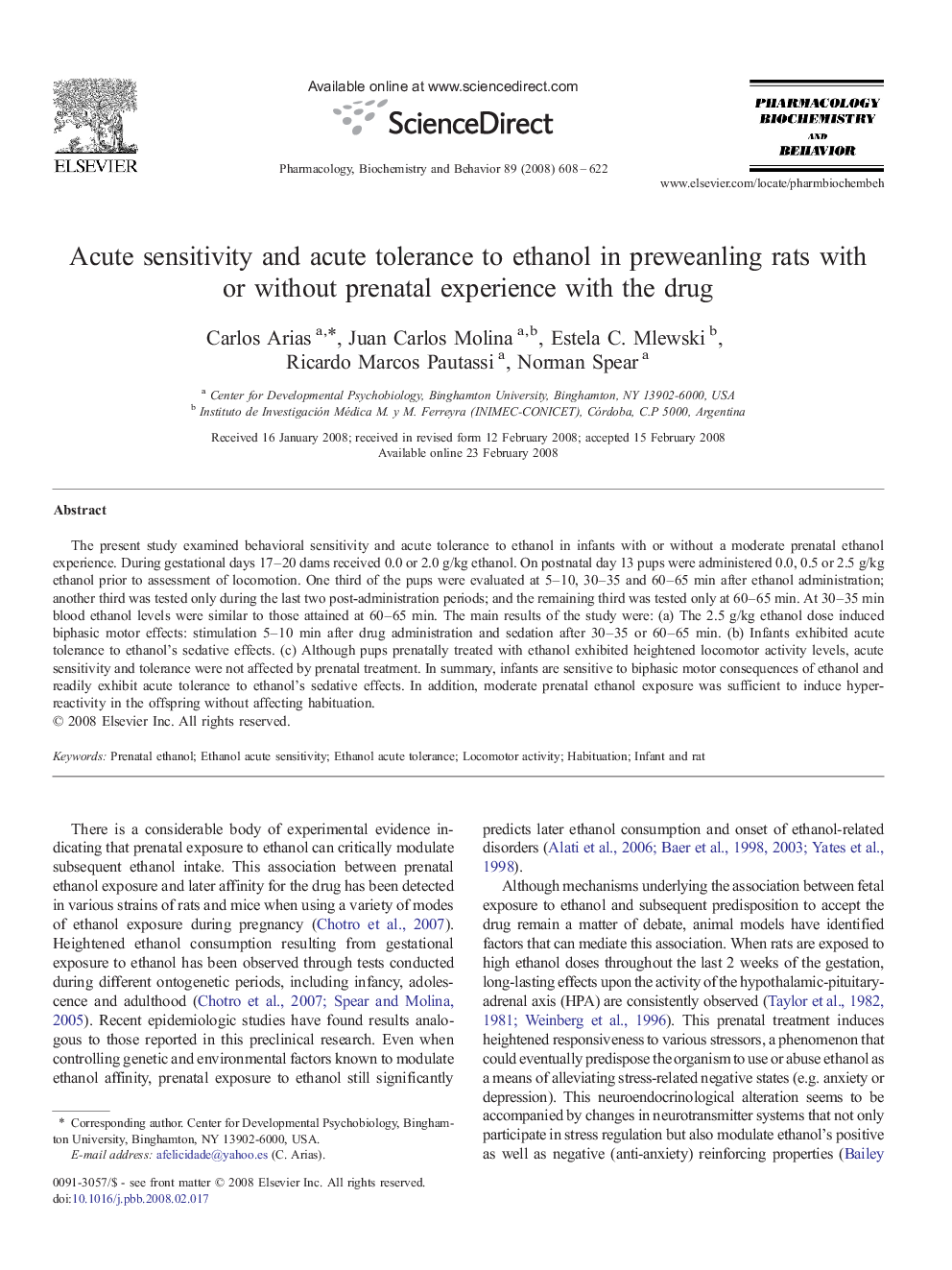| Article ID | Journal | Published Year | Pages | File Type |
|---|---|---|---|---|
| 2013933 | Pharmacology Biochemistry and Behavior | 2008 | 15 Pages |
The present study examined behavioral sensitivity and acute tolerance to ethanol in infants with or without a moderate prenatal ethanol experience. During gestational days 17–20 dams received 0.0 or 2.0 g/kg ethanol. On postnatal day 13 pups were administered 0.0, 0.5 or 2.5 g/kg ethanol prior to assessment of locomotion. One third of the pups were evaluated at 5–10, 30–35 and 60–65 min after ethanol administration; another third was tested only during the last two post-administration periods; and the remaining third was tested only at 60–65 min. At 30–35 min blood ethanol levels were similar to those attained at 60–65 min. The main results of the study were: (a) The 2.5 g/kg ethanol dose induced biphasic motor effects: stimulation 5–10 min after drug administration and sedation after 30–35 or 60–65 min. (b) Infants exhibited acute tolerance to ethanol's sedative effects. (c) Although pups prenatally treated with ethanol exhibited heightened locomotor activity levels, acute sensitivity and tolerance were not affected by prenatal treatment. In summary, infants are sensitive to biphasic motor consequences of ethanol and readily exhibit acute tolerance to ethanol's sedative effects. In addition, moderate prenatal ethanol exposure was sufficient to induce hyper-reactivity in the offspring without affecting habituation.
